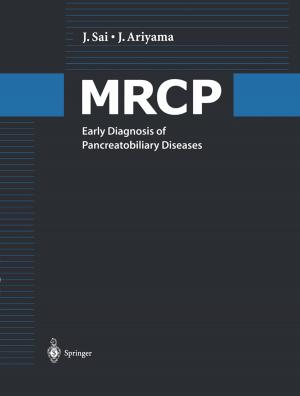Biological Effects by Organotins
Nonfiction, Science & Nature, Science, Biological Sciences, Zoology, Environmental Science, Technology| Author: | ISBN: | 9784431564515 | |
| Publisher: | Springer Japan | Publication: | December 7, 2016 |
| Imprint: | Springer | Language: | English |
| Author: | |
| ISBN: | 9784431564515 |
| Publisher: | Springer Japan |
| Publication: | December 7, 2016 |
| Imprint: | Springer |
| Language: | English |
This book provides an overview of the induction mechanism of imposex caused by organotin compounds in gastropods, as well as fundamental information on the physiology and biochemistry of reproduction in mollusks. Are the sex hormones of gastropod mollusks vertebrate-type steroids, or neuropeptides? What about lipid disturbance and membrane toxicity due to organotin compounds? The book also discusses the latest findings on the role of nuclear receptors, such as retinoid X receptor (RXR), retinoic acid receptor (RAR) and peroxisome proliferator-activated receptor (PPAR), in the development of imposex in gastropods.
Further, it describes the current state of contamination by organotins in the marine environment and gastropod imposex, with a special focus on Europe and Asia, introduces readers to analytical techniques for organotin compounds, and assesses the contamination and adverse effects of alternatives to organotin-based antifouling paints.
Imposex, a superimposition of male genital tracts, such as penis and vas deferens, on female gastropod mollusks, is known as a typical phenomenon or consequence of endocrine disruption in wildlife. Imposex is typically induced by very low concentrations of organotin compounds, such as tributyltin (TBT) and triphenyltin (TPhT) from antifouling paints on ships and fishing nets. Reproductive failure may be brought about in severely affected stages of imposex, resulting in population decline and/or mass extinction. Thus, gastropod imposex has been recognized as a critical environmental pollution issue. Although gastropod imposex is also highly interesting for the biological sciences because of its acquired pseudohermaphroditism and/or sex change by certain chemicals, such as TBT and TPhT, the mechanism that induces the development of imposex remains unclear, possibly due to our limited understanding of the endocrinology of gastropod mollusks. This book offers a useful guide for professionals and students interested in the fields of aquatic biology, invertebrate physiology, ecotoxicology and environmental science.
This book provides an overview of the induction mechanism of imposex caused by organotin compounds in gastropods, as well as fundamental information on the physiology and biochemistry of reproduction in mollusks. Are the sex hormones of gastropod mollusks vertebrate-type steroids, or neuropeptides? What about lipid disturbance and membrane toxicity due to organotin compounds? The book also discusses the latest findings on the role of nuclear receptors, such as retinoid X receptor (RXR), retinoic acid receptor (RAR) and peroxisome proliferator-activated receptor (PPAR), in the development of imposex in gastropods.
Further, it describes the current state of contamination by organotins in the marine environment and gastropod imposex, with a special focus on Europe and Asia, introduces readers to analytical techniques for organotin compounds, and assesses the contamination and adverse effects of alternatives to organotin-based antifouling paints.
Imposex, a superimposition of male genital tracts, such as penis and vas deferens, on female gastropod mollusks, is known as a typical phenomenon or consequence of endocrine disruption in wildlife. Imposex is typically induced by very low concentrations of organotin compounds, such as tributyltin (TBT) and triphenyltin (TPhT) from antifouling paints on ships and fishing nets. Reproductive failure may be brought about in severely affected stages of imposex, resulting in population decline and/or mass extinction. Thus, gastropod imposex has been recognized as a critical environmental pollution issue. Although gastropod imposex is also highly interesting for the biological sciences because of its acquired pseudohermaphroditism and/or sex change by certain chemicals, such as TBT and TPhT, the mechanism that induces the development of imposex remains unclear, possibly due to our limited understanding of the endocrinology of gastropod mollusks. This book offers a useful guide for professionals and students interested in the fields of aquatic biology, invertebrate physiology, ecotoxicology and environmental science.















